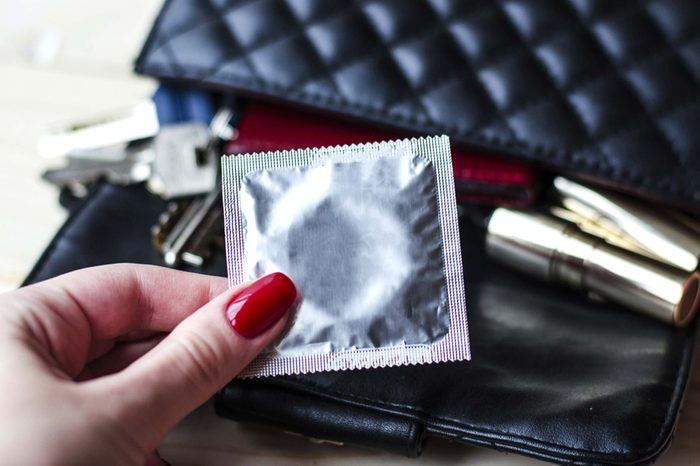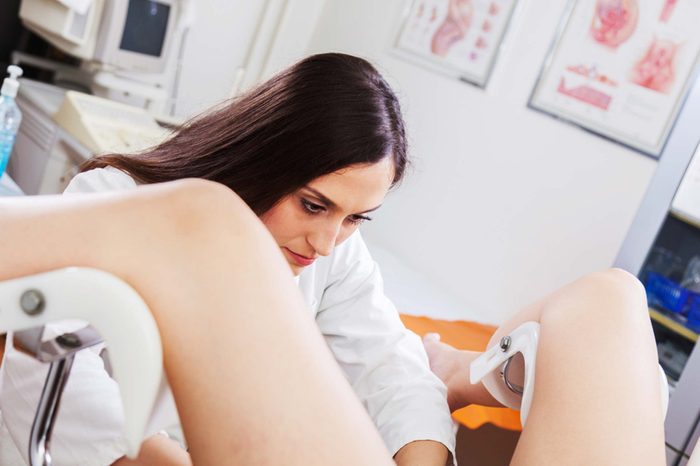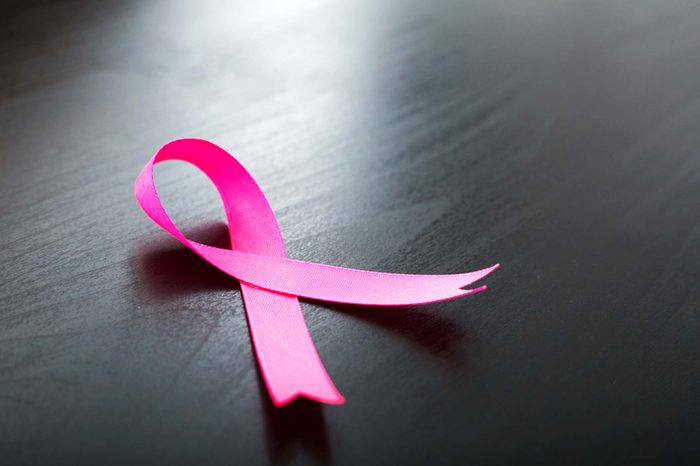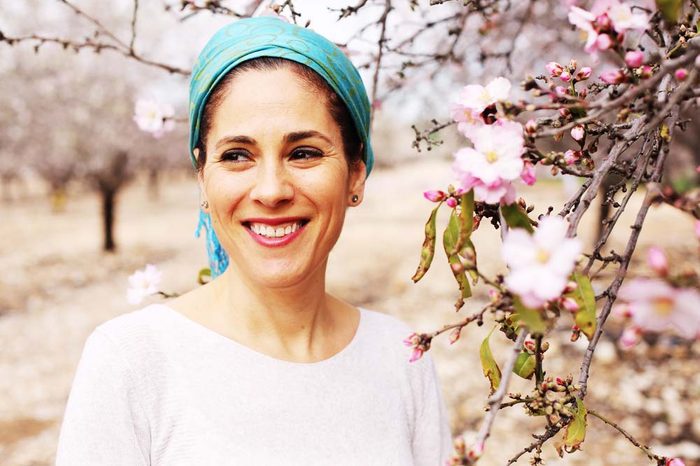Questions to ask your gynecologist
Every year, during your visit to the gynecologist, you may feel nervous and anxious as you sit in the waiting room. You wonder “Does everything look normal down there?” or “Why do I feel so itchy?” or “Is this much discharge OK?” You might be inclined to shy away from these so-called “embarrassing” questions, but it’s important to speak up and tell your gynecologist about these concerns.
For clarity on your vaginal health, take a look at the nine questions you should ask your gynecologist on your visit.
Get The Healthy @Reader’s Digest newsletter

How can I tell if I have a vaginal infection?
“Discharge that is green, dark yellow, or brown and has a foul odor is most often a sign of an infection and should be reported to your gynecologist,” explains Sheeva Talebian, MD, obstetrician-gynecologist (OB-GYN), at CCRM New York and co-founder of Truly-MD. “Most infections are related to sexual intercourse but not always. They can also be caused by a tampon that has been left in too long, a cervical lesion, or poor hygiene. Any change that is not pleasant (in terms of pain, foul smell, color, or consistency) should be checked out.” Dr. Talebian says.
13 Things Gynecologists Wish You Knew About Yeast Infections

Sometimes I bleed after sex. Is this normal?
“Bleeding after sex can be normal but should not be ignored,” advises Dr. Talebian says. “If you notice this once, there’s no need to panic and call the emergency line of your ob-gyn, but if you do notice this is happening consistently, you should go in for an exam. Bleeding can simply be from a ‘sensitive cervix’ (one with exposed blood vessels) but it can also be from a cervical or vaginal lesion, something that needs to be tested and rarely be cancer. Bleeding during intercourse can also come from the endometrial cavity (like menstrual blood). While most causes of bleeding during and after sex are benign, they should not be ignored,” Dr. Talebian explains. (Check out these other sex questions you might want to ask your OB-GYN.)

I “forgot” to use protection. What should I do?
“You should use emergency contraception if you don’t want to get pregnant,” Dr. Talebian says. “You should also go in to see your gynecologist a few weeks after the episode to do sexually transmitted disease (STD) testing. Immediate testing (as in the next day) will often be negative. Unfortunately, there are no remedies to erase the event. I would not recommend douching or any sort of self-cleansing because this could aggravate the tissue and increase the chances of infection.”

What age is too young for menopause?
“There really is no age too early for menopause,” says Mache Seibel, MD, OB-GYN, Harvard Medical School faculty member, and author. “About five to 10% of women enter menopause before age 46. And the symptoms begin up to ten years before that. If you have symptoms such as foggy brain, lack of energy or hot flashes, feel too tired, or have heart palpitations or low libido, it could be menopause or premenopause,” he says.

When is it OK to stop using condoms with a partner?
“If you have been with a consistent partner, you are both monogamous, and you have transitioned to hormonal contraception or an intrauterine device, also known as an IUD, then it is OK to stop using condoms once you have both been tested for STIs,” Dr. Talebian says.

Does estrogen cause breast cancer?
“There has been a lot of confusion about this question,” Dr. Seibel says. “The fact is, a large study called the Women’s Health Initiative (or WHI) suggested incorrectly that it does. But when the same data was reevaluated a decade later and [when] the patients [were] matched by age, it was found that estrogen is beneficial in most patients and safe to take. In fact, for women without a uterus and who require estrogen-only (without a progestin), the risk of cancer was actually 23% less than the placebo, and the risk of heart disease was 32 percent lower,” Dr. Seibel explains. “The secret is the Estrogen Window, which is the name of my book and means that there is a window of opportunity in which estrogen can be taken safely. The best age is 50 to 59. If menopause starts earlier, then begin it at that time. The risks increase as women begin estrogen over the age of 60 to 65,” Dr. Seibel adds.

Is it true that I might miscarry if I get pregnant shortly after quitting my birth control?
“There is a myth that you should not get pregnant right after stopping birth control because miscarriage risk is higher,” Dr. Talebian says. “This is incorrect. If you stop birth control with plans to conceive, you can try immediately. If you do not get a period and have a negative pregnancy test after about eight weeks off the pill, you should speak with your doctor. This may be a sign that you are not ovulating.”

Is it okay to have such frequent discharge?
“Discharge is normal in women! This is why we wear underwear and why ‘panty-liners’ are needed. Discharge changes in quantity and consistency during the menstrual cycle based on your hormones. Normal discharge is often clear to white, and sometimes a faint yellow,” Dr. Talebian says. If you notice a change in your discharge, though, be sure to mention it to your gyno. According to the Cleveland Clinic, you should keep an eye out for an increase in the amount of discharge you’re producing; a change in its color, texture or consistency; a new, foul odor; or if you experience pain or itching around your vagina.

